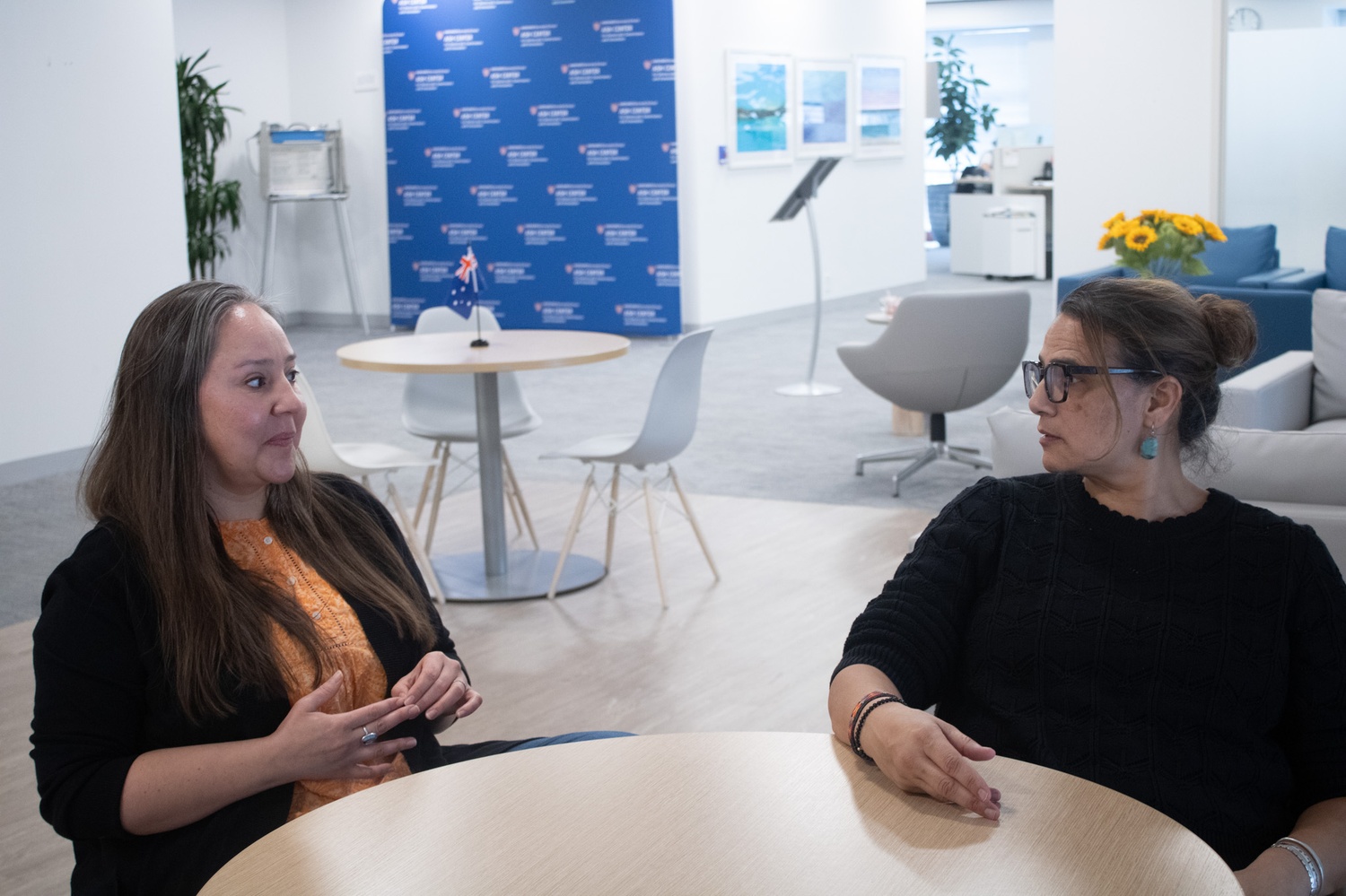
News
Summers Will Not Finish Semester of Teaching as Harvard Investigates Epstein Ties

News
Harvard College Students Report Favoring Divestment From Israel in HUA Survey

News
‘He Should Resign’: Harvard Undergrads Take Hard Line Against Summers Over Epstein Scandal

News
Harvard To Launch New Investigation Into Epstein’s Ties to Summers, Other University Affiliates

News
Harvard Students To Vote on Divestment From Israel in Inaugural HUA Election Survey
‘A Long Time Coming’: HKS’ Indigenous Governance Project Looks to Stable Next Chapter

The Chilkat Indian Village, a tribal group more than 100 miles from Juneau in southeast Alaska, is home to just 80 residents.
This summer, though, two students from the Harvard Kennedy School’s Project on Indigenous Governance and Development joined the Village, working to document and protect traditional Chilkat food sources threatened by an upstream exploratory mine.
Alaina Birkel, who directs intergovernmental affairs for the Chilkat Indian Village, said the students’ work helped lend legitimacy to the “Chilkat Forever” campaign — the tribe’s attempt to block the mining operation.
The internship was an extension of a class that pairs HKS students with Indigenous nations through the Project— a longstanding Harvard Kennedy School program dedicated to moving Indigenous tribes toward autonomy and self-governance.
“We go, ‘Hey, we have this resource of these motivated and smart students who might be willing to work on your problems,’” said HKS lecturer Eric Henson, who leads the class. “It’s the community voice. It is like ‘What’s on your plate? And how can we help you think about it?’”
The class is one arm of the project, founded in 1987 to conduct research and mobilize students to address the issues facing indigenous groups. Though Harvard researchers have studied Indigenous governance through the project since its inception, a $15 million donation in 2023 has set it on a new course for longevity.
The gift was funded by several donors, including the Endeavor Foundation, the Chickasaw Nation, and HKS professor emeritus Joseph P. Kalt and his wife Judith K. Gans. It supports an endowed chair for a professor to study Indigenous governance, an endowed senior fellowship, and new programming.
The Project on Indigenous Governance hosted chief Sophie Pierre of the Ktunaxa Nation as its inaugural senior fellow in the spring, and welcomed Randall Akee in September as the new faculty director and first endowed professor of Indigenous governance.
For the staff and faculty who lead the project — many of whom have dedicated their careers to studying and supporting Indigenous governance — it was the culmination of a decades-long push to safeguard their program for generations to come.
Megan M. Hill, the senior program director, called it both a symbolic and material victory. She said that donation solidifies the project’s work and extends its life indefinitely through the endowment.
“I think it’s a long time coming — institutionalizing, for lack of a better word, the reality that Indigenous voices and perspectives are valued here,” Hill said.
“So as long as Harvard University exists — which we expect is going to be a very long time — it will always have a focus on Indigenous governance issues and policy issues because of that endowment,” she added.
The Project on Indigenous Governance is unique not just at Harvard but across the country, its faculty and staff said, for the trust it has cultivated with Indigenous communities through decades of close collaboration.
Akee, the new faculty director, said the project has built up “a really good track record” over its lifespan, giving it credibility that other organizations lack.
“We’re just very grateful to have a partnership that can continue and be sustained because of the important work that everyone’s committed to doing,” said Birkel, the Chilkat director of intergovernmental affairs.
That reputation contrasts with the University’s fraught relationship with indigenous communities. Though the University’s founding charter pledged in 1650 to educate both “English and Indian youth,” Harvard would spend the next 300 years encroaching on Native land, and did not make a concerted effort to recruit Native students until the 1990s.
Though Akee, the faculty director, said Harvard’s central administration has a “strong connection” with regional tribal leaders through its Harvard University Native American Program, staff at the HKS project said they were the only group working hand-in-hand with Indigenous communities on research and governance.
The 2023 gift made that work possible on a larger scale. Miriam Jorgensen, who directs research at the project and recently produced a white paper on the efficacy of indigenous conservation, said having an endowed indigenous professor makes it easier to get support and funding for proposals.
“The confidence that a funder can have in the work that’s produced is greater when it’s clear that the institution has indigenous leadership,” Jorgenson said.
“It’s more about the optics of the commitment,” she added. “It’s about the ability of an institution to convey that it’s serious.”
If anything, this moment demands that Harvard — and the United States writ large — pay special attention to indigenous communities and their governance structures, Pierre said. In the face of “destruction” and “chaos” at the federal level, Pierre suggested that the U.S. could look toward Indigenous systems that prioritize the community’s well-being.
The growth of the Harvard Project, she said, is a sign that the institution is catching on.
“Now that there’s chaos, and an institution like Harvard is saying, ‘Yes, we have something solid here,’ we can bring it in,” Pierre said.
“Thing happen when they’re supposed to happen, and we started this fellowship when it was supposed to happen,” she added.
—Staff writer Elise A. Spenner can be reached at elise.spenner@thecrimson.com. Follow her on X at @EliseSpenner.
—Staff writer Tanya J. Vidhun can be reached at tanya.vidhun@thecrimson.com. Follow her on X @tanyavidhun.
Want to keep up with breaking news? Subscribe to our email newsletter.
